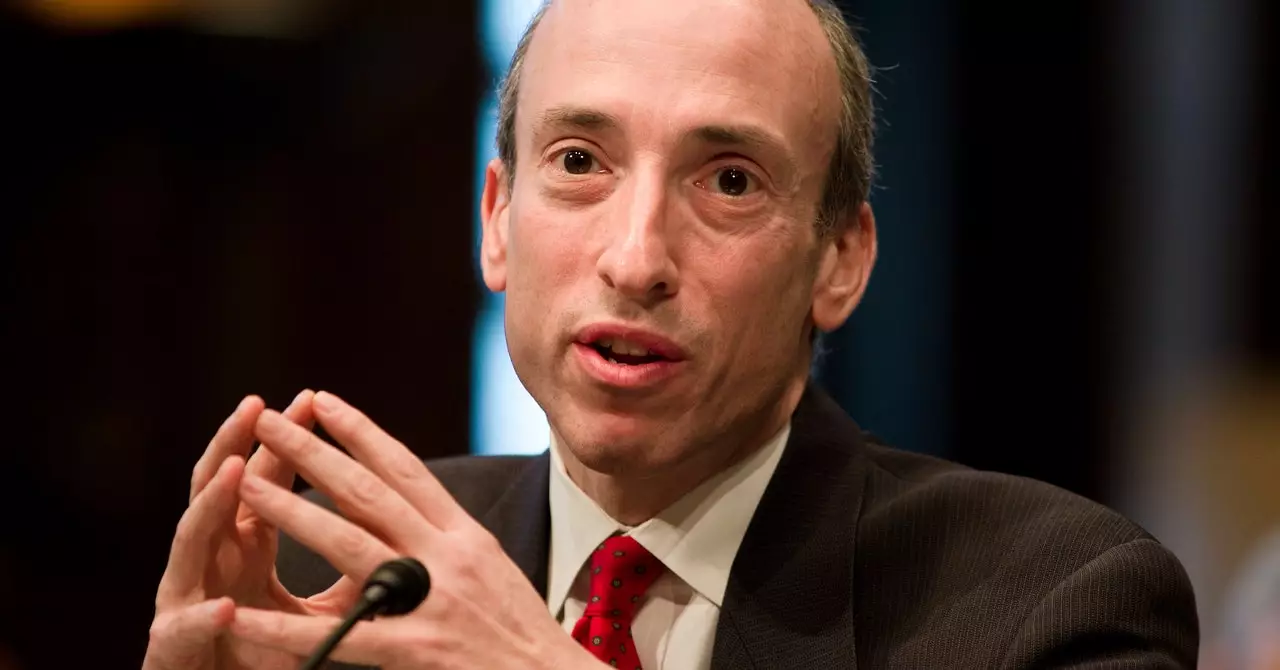The intersection of politics and cryptocurrency has long been a contentious ground, but recent developments hint at a potentially transformative shift in the U.S. crypto landscape. Former President Donald Trump’s re-emergence into the political arena has reignited discussions around regulatory frameworks that could significantly impact the bitcoin market, especially with his bold commitments made at the Nashville Bitcoin conference in July.
During his speech in Nashville, Trump set the stage for his reelection campaign by announcing his intention to dismiss Gary Gensler, the current chair of the Securities and Exchange Commission (SEC). This statement ignited thunderous applause from the audience but also shed light on Gensler’s controversial tenure, which has seen rampant criticism from various sectors, particularly the crypto industry. Trump’s commitment to appoint a new SEC chair who would “build the future, not block the future,” speaks volumes about his administration’s anticipated pivot towards a more crypto-friendly regulatory approach.
The implications of this rhetoric extend beyond mere political banter. Should Trump follow through with this pledge, it could herald a new phase of regulatory clarity that the crypto community desperately seeks. Gensler’s regulation-heavy approach has made many in the industry wary and frustrated, and a change in leadership at the SEC could rejuvenate industry confidence.
Trump’s engagement with the cryptocurrency sector has been notably proactive. His recent interactions with crypto executives, including mining company leaders at Mar-a-Lago, reflect his genuine interest in the sector’s intricacies. According to Brian Morgenstern of Riot Platforms, conversations with Trump were in-depth and revealing of his eagerness to understand the industry’s dynamics. This proactive stance is critical, especially considering the ever-evolving nature of cryptocurrency and the need for informed policy-making.
Moreover, Trump’s outreach has apparently started to bear fruit. Reports suggest that industry representatives are actively participating in the selection process for Gensler’s successor, indicating that Trump’s administration is indeed taking industry insights seriously. This move could bridge the gap between regulators and industry stakeholders, fostering a more collaborative regulatory environment.
Trump’s campaign trail has been rife with promises aimed at solidifying the United States’ position as a global leader in cryptocurrency, particularly bitcoin. His proposals include establishing a national bitcoin stockpile and creating an environment conducive to stablecoin businesses.
Such aspirations not only illustrate a commitment to crypto but suggest a broader economic vision that integrates digital assets as fundamental components of America’s financial future.
Adding weight to these ambitions, Trump’s campaign has made strides into the crypto space with initiatives such as accepting cryptocurrency donations. Furthermore, his sons’ foray into the market with World Liberty Financial, alongside recent reports of trademark applications for a crypto payment service by Truth Social, signal a tangible interest in exploring the financial terrain that cryptocurrency offers.
The forthcoming administration’s cabinet selections appear poised to lean toward pro-crypto ideologies, which could symbolize a seismic shift in U.S. regulatory frameworks governing cryptocurrencies. Individuals like Howard Lutnick, a notable figure in financial services and proponent of Tether, further suggest that Trump’s potential second term could see a slew of pro-crypto policies. Other prominent figures within Trump’s anticipated administration have made pro-crypto statements, equating to an emerging narrative that recognizes the critical need for amiable regulatory conditions.
Historically, the price of bitcoin and the sentiment surrounding its market have been correlated with regulatory news. Since Trump’s reelection, bitcoin’s price has reached near-record heights, indicating that the market is anticipating favorable regulatory changes. Such optimism could catalyze increased investment and broader adoption of cryptocurrency.
As Trump gears up for a potentially momentous political comeback, the implications of his promises for the crypto industry are profound. His administration’s ability to enact significant regulatory reforms could usher in a new era characterized by growth, innovation, and acceptance within the U.S. and beyond. With the involvement of pro-crypto individuals in pivotal roles, we may very well witness a landscape where bitcoin and other cryptocurrencies play critical roles in shaping economic policies. The future indeed looks promising for the crypto landscape under a Trump-led administration, where the synergy between politics and digital currencies can thrive.

